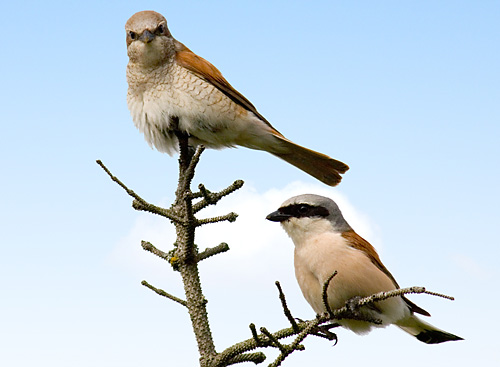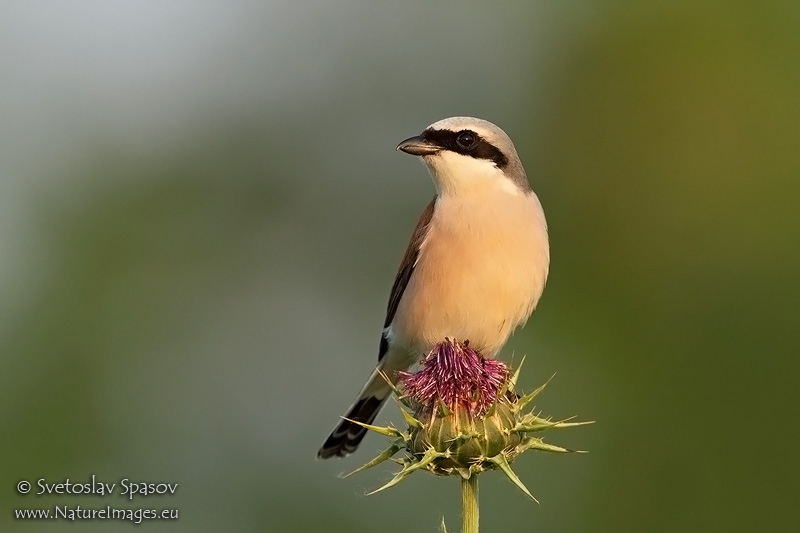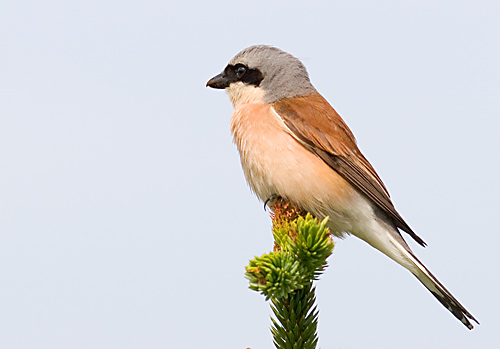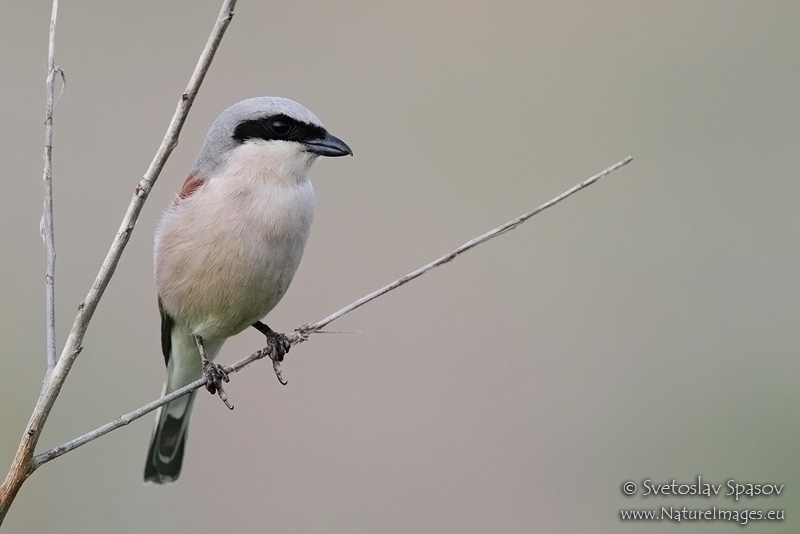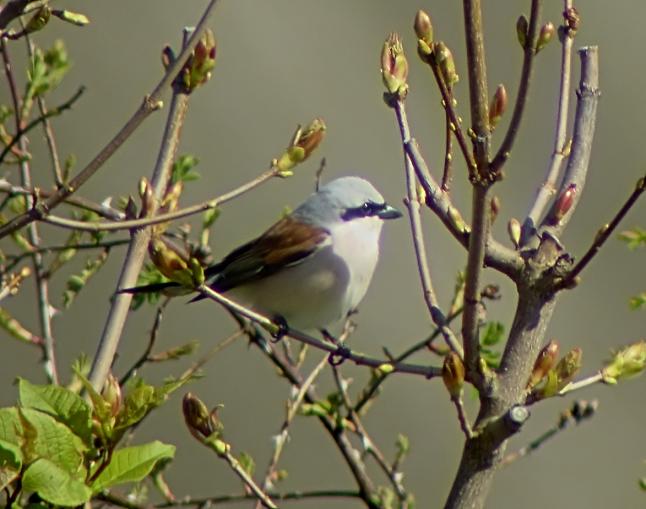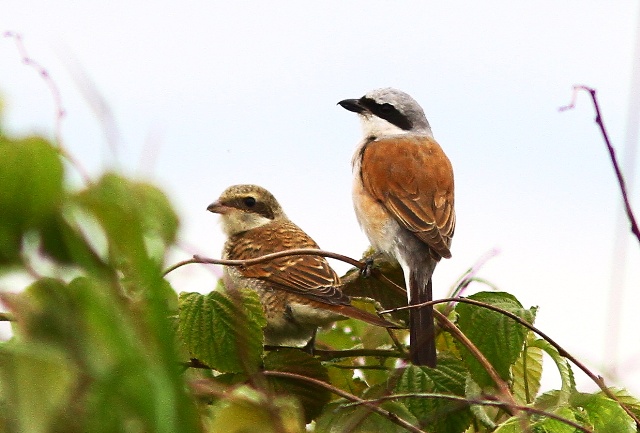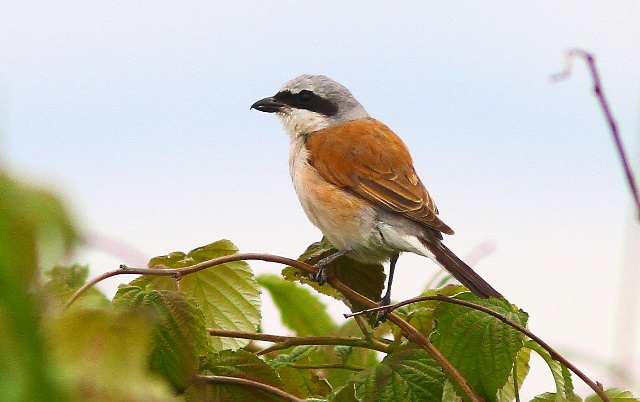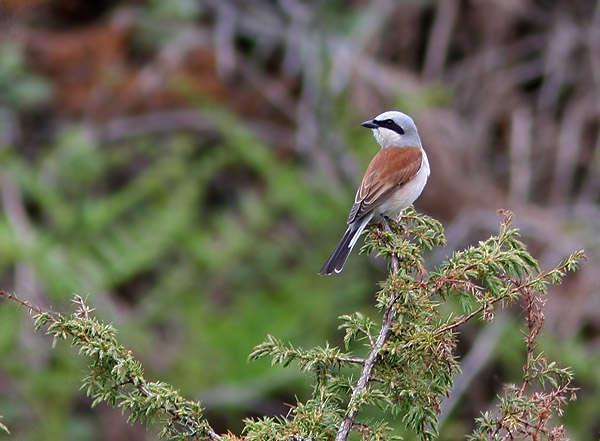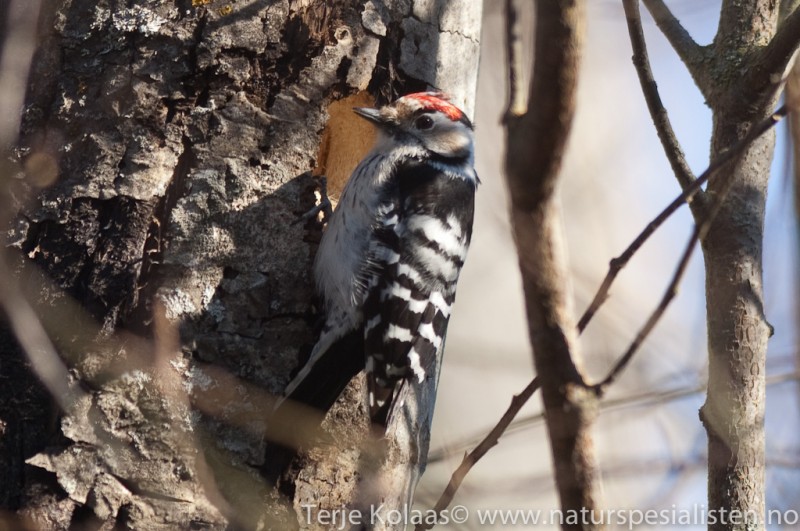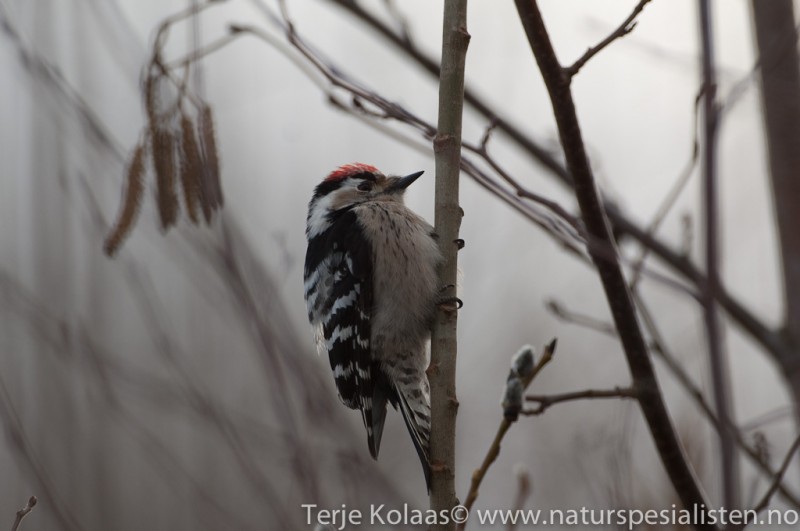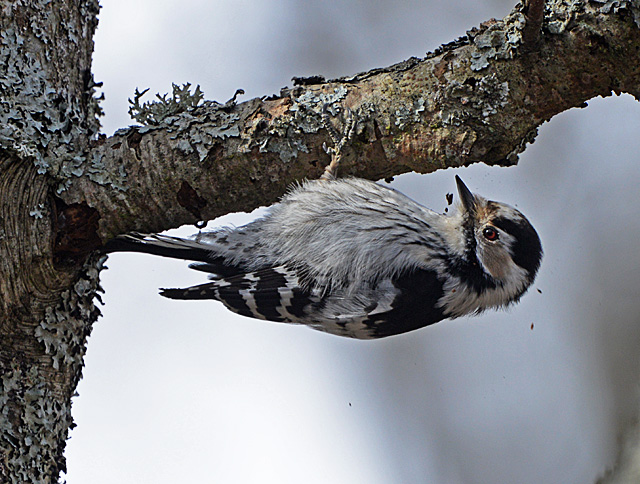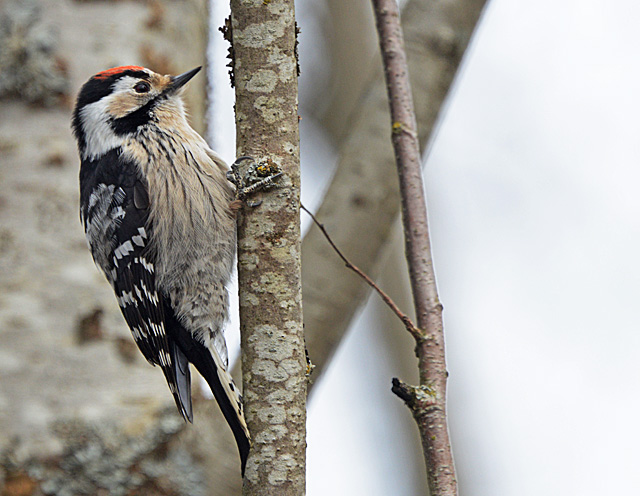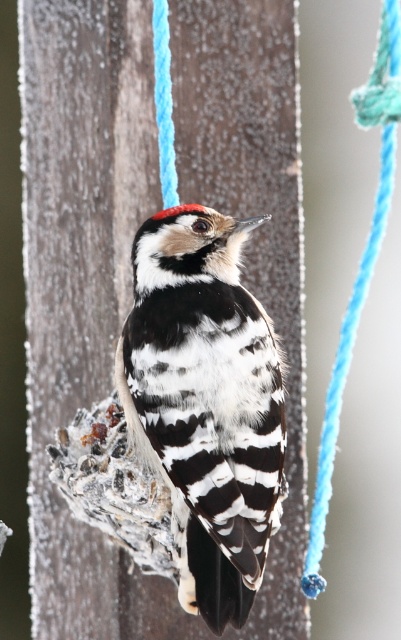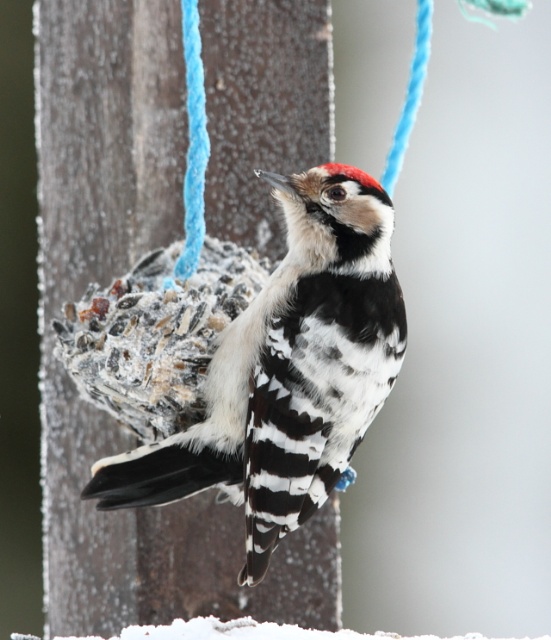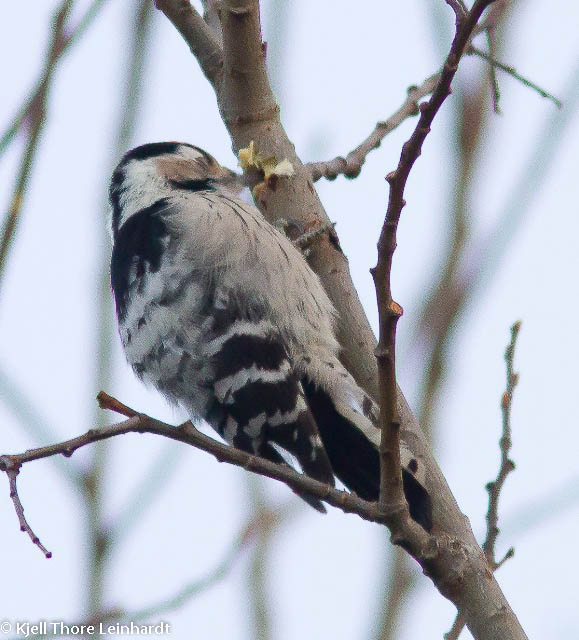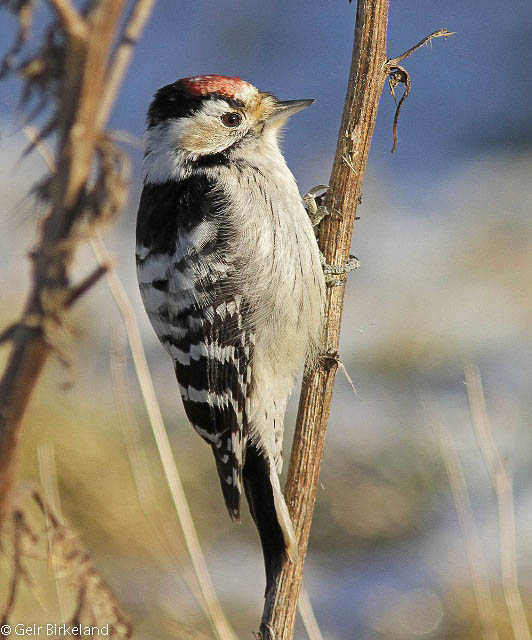Red-backed Shrike (Lanius collurio)
Lesser Spotted Woodpecker (Dryobates minor)
Male with brown back, pinkish white underparts and a bluish grey head with a black eye mask. Female more dull with barred underparts. Juvenile like female, but upperparts also barred . Tail brown with white edges in all plumages. Females and juveniles easily confused with other southern/eastern or vagrant shrikes like; Brown Shrike, Isabelline Shrike, Woodchat Shrike and Turkestan Shrike. Differs from those in white sides of tail, barred rump, mantle and scapulars, scaly underparts and dark or yellowish base of bill (not pink).
Sound:Call a hard "check check" (like striking two rocks together), and a variable nasal "twee" Song surprisingly varied with many expert imitations of small passerines, interwoven with bell-like ringing and dry chirping sounds. May be confusing and hard to identify if bird not seen. Song not very loud, but phrases can be very long.
Alarm call, song:
Distribution:
Xeno-canto: map
Ecology:Birdlife ecology
Links:
Observation.org Latest observations
Image search Flickr NB! May give other species
CCVery small, almost sparrow-sized, woodpecker. Most likely to be confused with Great Spotted Woodpecker, but vent never red (always in Great Spotted). Back heavily barred, and underparts streaked. No large patches of white on upperparts. Male with red crown, female purely black and white. Bill small and slender. More likely to be seen foraging in branches than most other woodpeckers. Fluttering flight.
Sound:Frequently drums in quite long series. Much longer than Great Spotted, and without ritardando. Most common call a series of merlin-like "ke-ke-ke-ke-ke-ke" given at fairly stable pitch, and less hoarse than Merlin. Differs from Wryneck in lacking marked rise and fall in pitch, and being less plaintive.
Drumming, song:
Distribution:
Xeno-canto: map
Ecology:Birdlife ecology
Links:
Observation.org Latest observations
Image search Flickr NB! May give other species
CCCC-photo:Stefan Berndtsson, Licence,Link, CC-photo:Maggi_94, Licence,Link,

 English
English Albanian
Albanian
 Armenian
Armenian
 Bulgarian
Bulgarian
 Catalan
Catalan
 Croatian
Croatian
 Czech
Czech
 Danish
Danish
 Dutch
Dutch
 Finnish
Finnish
 French
French
 Georgian
Georgian
 German
German
 Greek
Greek
 Hungarian
Hungarian
 Italian
Italian
 Latvian
Latvian
 Lithuanian
Lithuanian
 Macedonian
Macedonian
 Norwegian
Norwegian
 Polish
Polish
 Portuguese
Portuguese
 Romanian
Romanian
 Russian
Russian
 Sami : Lule sami
Sami : Lule sami
 Sami : North sami
Sami : North sami
 Sami : South sami
Sami : South sami
 Scientific names
Scientific names
 Serbian
Serbian
 Spanish
Spanish
 Swedish
Swedish
 Ukrainian
Ukrainian


